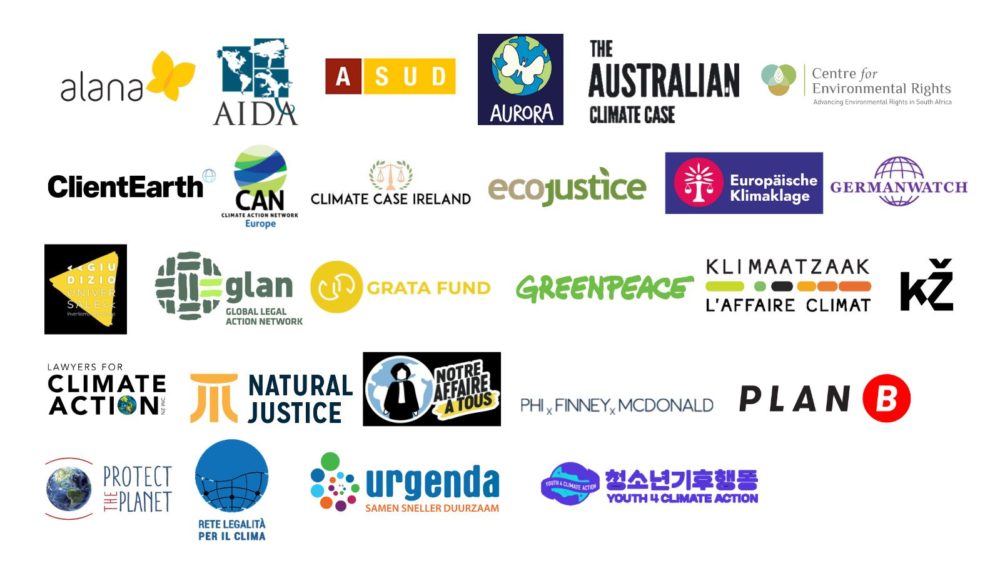Governments of the world
Climate action is a legal duty. After decades of empty promises, it is time for real action
and accountability.
Climate change is here now. Ecosystems are collapsing at an unprecedented rate. Vast regions of the world are becoming uninhabitable. Billions of people are facing the prospect of a dangerous and uncertain future. Extreme weather events have wreaked havoc across every continent this year alone. The “window of opportunity to secure a liveable and sustainable future for all” is closing fast.
For decades, you have pledged to address the climate crisis. In successive treaties and decisions, you promised to slash greenhouse gas emissions. Just last year in Glasgow, you reaffirmed your commitment to limit global average temperature increase to 1.5°C and to ramp up mitigation ambition within the year. Yet countries’ latest global mitigation commitments show that we are completely off track. So far the vast majority of countries have not delivered on their commitment to strengthen their targets this year.
We are on the precipice of the most serious intergenerational violation of human rights in history. But affected communities and those who stand with them are not giving up.
We – lawyers and activists from across the globe – are standing with frontline communities to challenge your inadequate climate action. We have filed over 80 cases around the world to compel you to ramp-up your climate ambition: from the Netherlands to Nepal; from Canada to Colombia, from Belgium to Brazil, from Norway to New Zealand, from South Africa to South Korea.
The law is on our side. Courts in dozens of countries have already recognized that you have a legal duty to address the climate crisis, and that this requires you to take more ambitious climate action. Cases have led to the adoption of new climate laws, stronger mitigation targets, and the closure of coal-fired power plants. The Intergovernmental Panel on Climate Change (IPCC) itself has recognised that climate litigation has the power to shape “the outcome and ambition of climate governance” towards aligning government action to best available science.
COP27 is an opportunity for you to change course: to minimise the extent of suffering and human rights violations caused by your failure to address the crisis, and to live up to your legal obligations under domestic and international law.
Governments of the world: your delay is costing lives. Strong action is needed now to protect people and the planet.
If you continue to fail us, we will continue to turn to the courts to demand accountability.
Signed
Alana (Brazil)
Asociación Interamericana para la Defensa del Ambiente (Latin America and the Caribbean)
Aurora (Sweden)
The Australian Climate Case (Australia)
Grata Fund
Phi Finney McDonald
Centre for Environmental Rights SA (South Africa)
Client Earth (Global)
Climate Action Network Europe (Europe)
Climate Case Ireland (Ireland)
Ecojustice (Canada)
Europäische Klimaklage (Austria)
Germanwatch (Germany)
Giudizio Universale (Italy)
Rete Legalità per il Clima
A Sud
Global Legal Action Network (Global)
Greenpeace (Global)
Klimaatzaak (Belgium)
Klimatická žaloba (Czech Republic)
Lawyers for Climate Action NZ (New Zealand)
Natural Justice (South Africa)
Notre Affaire à Tous (France)
Plan B (United Kingdom)
Protect the Planet (Germany)
Russian Climate Case (Russia)
Adv. Grigory Vaypan
Adv. Alexandra Suchkova
Adv. Dariana Gryaznova
Adv. Padam Bahadur Shrestha (Nepal)
Smith v. Attorney-General (New Zealand)
Urgenda Foundation (The Netherlands)
Youth4ClimateAction (South Korea)




